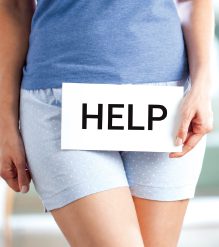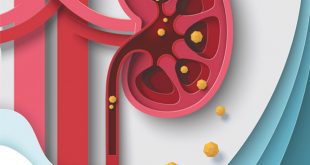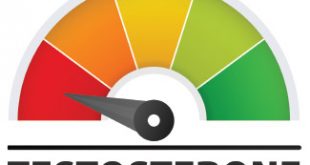 Urinary issues are a common problem among women of all ages. It can be an embarrassing and frustrating issue to deal with, but it is important to know that you are not alone. We spoke with Dr. Kenneth Essig, a urologist with BayCare Medical Group, to better understand the urinary issues women deal with and what is normal.
Urinary issues are a common problem among women of all ages. It can be an embarrassing and frustrating issue to deal with, but it is important to know that you are not alone. We spoke with Dr. Kenneth Essig, a urologist with BayCare Medical Group, to better understand the urinary issues women deal with and what is normal.
What is Normal and Abnormal?
Urinary incontinence is the involuntary leakage of urine from the bladder. It is a common condition that affects millions of people worldwide, but it is more common in women than men. The severity of the condition can vary from occasional leaks to a complete loss of bladder control.
It is normal for women to experience some urinary leakage during pregnancy, after childbirth, and as they age. However, if the leakage is frequent, occurs during physical activity or disrupts your daily life, it may be considered abnormal. There are two main types of urinary incontinence; Frequency/urgency leakage is called “Overactive Bladder (OAB). Laugh/cough/sneeze leakage is called “Stress Incontinence.” The treatments of these two conditions are very different. We will focus on OAB.
Facts About OAB
OAB is not a normal part of getting older.
OAB is not just part of being a woman.
OAB is not just an issue with the prostate.
OAB is not caused by something you did.
Surgery is not the only treatment for OAB.
There are treatments to help people manage OAB symptoms.
There are treatments to help even minor OAB symptoms.
OAB is a condition characterized by a sudden and frequent urge to urinate, often accompanied by urinary leakage. This condition can occur at any age but is more common in older adults. OAB is caused by the involuntary contraction of the bladder muscle, which causes the urge to urinate. However, in OAB, the bladder muscle contracts more frequently than necessary, leading to the frequent urge to urinate.
Treatments for Overactive Bladder
The treatment of OAB is focused on reducing the frequency and urgency of urination and improving bladder control. “The first line of defense against OAB is decreasing liquid consumption” explains Dr. Essig. “Our culture currently pushes massive volumes of water consumption that simply are not necessary for health. In fact, many adults are over hydrating their bodies and as a direct result experiencing OAB”. Dr. Essig continues by explaining adults should only urinate 3-6x/day and be able to make it through the night without needing to go. He has found that often when patients curtail their liquid consumption at 2-4 glasses of water daily, they maintain healthy body hydration and symptoms of OAB can disappear. Other behavioral changes that can improve the symptoms of OAB are limiting alcohol and caffeine consumption and avoiding diuretics.
When lifestyle changes simply aren’t enough, medications are highly effective in reprogramming the bladder to work more effectively and can often be discontinued after several months of use.
The next line of treatment involves a popular anti-aging treatment. Dr. Essig points out Botox isn’t just for your face. Use in the bladder is highly effective in relaxing the muscles and decreasing that feeling that you have to go. The procedure only takes 5 minutes, there is no cutting and no downtime.
The newest innovation involves a tiny implant that interrupts the signal that you have to go – this has shown amazing results. This minimally invasive procedure only takes 10-15 minutes to perform and has shown remarkable effectiveness in solving these life altering symptoms.
40% of women in the United States live with OAB symptoms. Many people living with OAB don’t ask for help. If you are suffering from OAB, there is no need to continue to do so in silence. There are a multitude of highly effective treatment options available. Get back to living a full healthy lifestyle without the worry of always having to go.
Dr. Essig received his Doctor of Medicine from the University of Cincinnati, College of Medicine in Cincinnati, Ohio. He completed his internship at Jewish Hospital Medical Center in Cincinnati, Ohio and a residency in Urology at SUNY Health Sciences Center in Syracuse, New York. Dr. Essig is a Diplomate of the American Board of Urology.
Dr. Essig has contributed numerous articles for publication to journals including, the Journal of Urology and Pediatric Surgery International. His clinical interests include pediatric urology and bladder obstruction. He is a member of the American Medical Association and the Florida Medical Association.
BayCare Medical Group Urology
7599 Cypress Gardens Blvd.
Winter Haven, FL 33884
For more information or to schedule an appointment call: (863) 845-2688
 Central Florida Health and Wellness Magazine Health and Wellness Articles of the Villages
Central Florida Health and Wellness Magazine Health and Wellness Articles of the Villages



